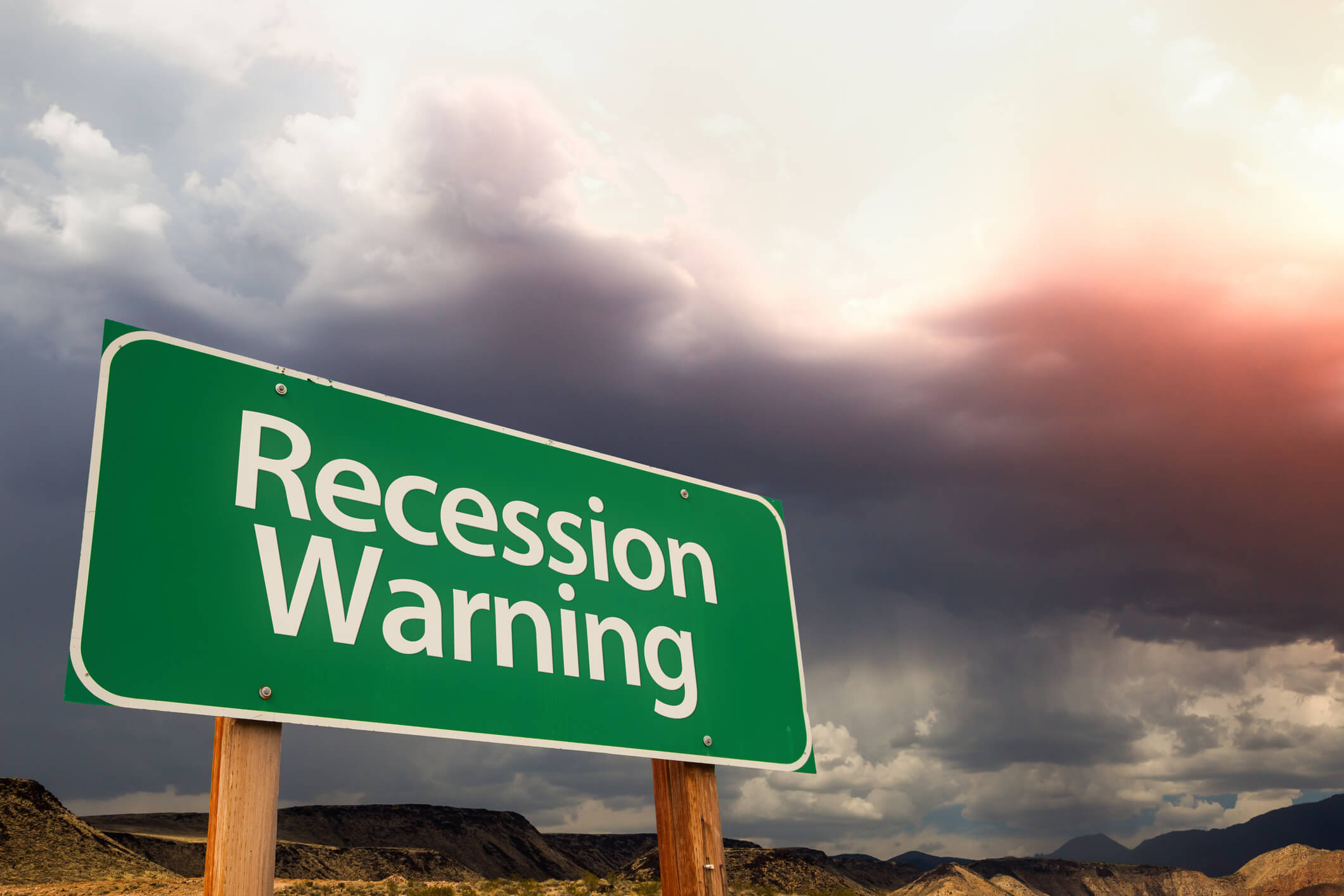A recession is less than a 10% decrease in a country’s Gross Domestic Product (GDP). The decrease must last more than a consecutive quarter of a year. GDP is the sum of private and public spending on goods, services, labor, and investment.
The terms recession and depression are often confused. It can be said that a recession is generally not as severe as a depression, and a recession tends to resolve quicker than a depression.
Only some people agree on a specific definition for determining an economic recession. Still, most can point to several factors that can cause a recession:

- Either a significant fall in prices or a substantial increase in prices may occur
- A decline indicates that people can spend less money, so the GDP is reduced
- An increase in price can also reduce private and public spending and, therefore, lower GDP
In a way, it is natural that countries experience mild recessions. It is a built-in or endogenous factor of society. Spending and consumption will increase or decrease, as will prices. However, another factor is needed in addition to these occasional drops in expenses to create a recession. Often, something changes rapidly and causes sharp increases or decreases in prices.
A recent recession in early 2000 was due to the sudden decline in dot.com industry activity. In the 1990s, the telecommunications industry made vast amounts of money. It began to exceed expectations regarding future demand. Suddenly, the previously sought-after demand was much smaller than expected, leading to massive layoffs, decreased production, and therefore decreased expenses.
The dot.com fall is considered a “shock” in GDP, which can greatly decrease if the product or industry falls in production. Although the recession resulting from the dot.com bust was considered during 2003, it has far-reaching consequences that are still felt.

Those who initially made excessive amounts of money can still find themselves without work. Telecommunications companies significantly reduced jobs, and employment rates in the industry have never been fully restored. Telecommunications companies also reduced costs by outsourcing production to foreign countries. While this outsourcing has allowed some companies to continue operations, it left many with training for specific jobs they could no longer utilize.
However, other industries have expanded since then and raised GDP. So, the recession is deemed “over,” even though many still feel its effects on a personal level. Rating a recession as “over” does not necessarily account for positive economic changes for the individual.
For example, a recession is sometimes evaluated regarding the country’s unemployment rate. When this is the case, and people find work, the failure to assess changes in income can make the economy seem more productive than it is. A former telecommunications employee who now works at Wal-Mart may have a job. Still, this work is not equivalent to the previous work in compensation. Thus, the analysis of only one aspect of a recession should not be used to indicate economic recovery.
- Getting a job during a recession can be difficult.
- A fall in GDP for two consecutive quarters is a recession.

- Consumers are less likely to make superficial purchases during a recession.
- Consumer spending decreased during the recession.
- More people tend to stay at home instead of leaving to save money during a recession.
- The recession is sometimes evaluated regarding a country’s unemployment rate.
The core effects of the recession are;
- For two consecutive quarters, economies faced a decline in the actual gross product of the country.
- Real Gross National Product (GNP) decreases by 1.5%
- There is more than a 75% decrease in company vacancies for six or more months.
- Around a 6% increase in the level of unemployment occurred due to the recession.
The recession can also be beneficial as you can cure inflation by the recession. As the Federal Reserve does, you can overcome inflation without causing recession by slowing the economy with balance. It does this without using any financial policy.
Politicians are responsible for setting, managing, and controlling the country’s budget well. They strive to stimulate the country’s economy by reducing the social program’s taxes and overlooking the national budget deficit. In this way, American debt increased up to $10.5 trillion. It happened when the United States government didn’t spend on the Economic Stimulus Package of 2009. People call it the American Reinvestment and Recovery Act.
 About Complete Controller® – America’s Bookkeeping Experts Complete Controller is the Nation’s Leader in virtual bookkeeping, providing service to businesses and households alike. Utilizing Complete Controller’s technology, clients gain access to a cloud platform where their QuickBooks™️ file, critical financial documents, and back-office tools are hosted in an efficient SSO environment. Complete Controller’s team of certified US-based accounting professionals provide bookkeeping, record storage, performance reporting, and controller services including training, cash-flow management, budgeting and forecasting, process and controls advisement, and bill-pay. With flat-rate service plans, Complete Controller is the most cost-effective expert accounting solution for business, family-office, trusts, and households of any size or complexity.
About Complete Controller® – America’s Bookkeeping Experts Complete Controller is the Nation’s Leader in virtual bookkeeping, providing service to businesses and households alike. Utilizing Complete Controller’s technology, clients gain access to a cloud platform where their QuickBooks™️ file, critical financial documents, and back-office tools are hosted in an efficient SSO environment. Complete Controller’s team of certified US-based accounting professionals provide bookkeeping, record storage, performance reporting, and controller services including training, cash-flow management, budgeting and forecasting, process and controls advisement, and bill-pay. With flat-rate service plans, Complete Controller is the most cost-effective expert accounting solution for business, family-office, trusts, and households of any size or complexity.




